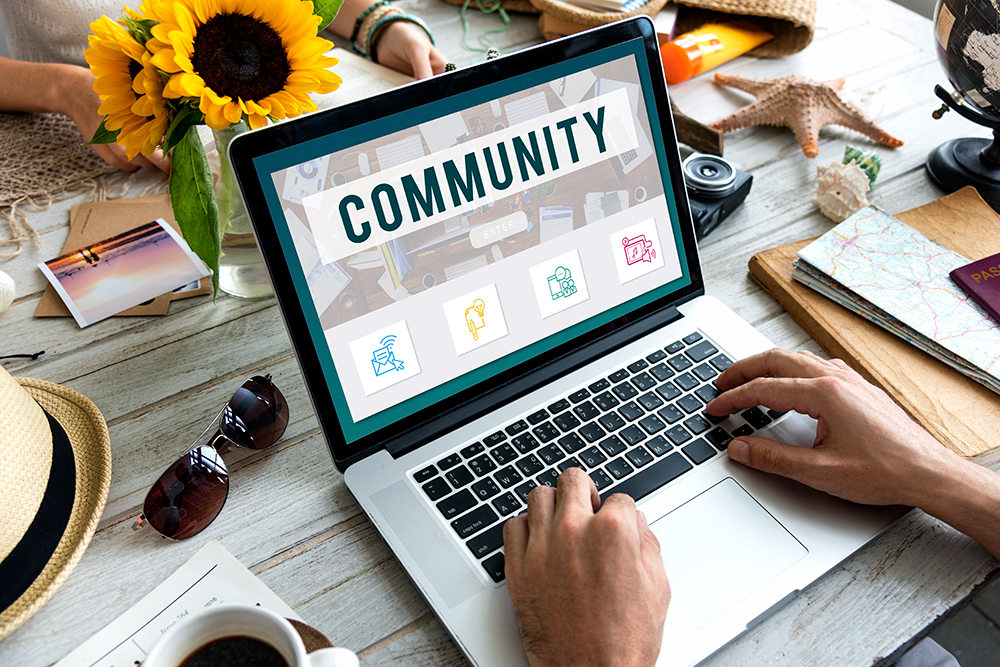Community for All
Ryan Frederick | January 4th, 2021

Community is hot right now as companies attempt to differentiate and build competitive advantage through the community around their companies and products. Community isn’t important just for big companies and product companies. In fact, community may be more important for small companies and services firms.
So why are companies so intentional about building communities? Communities engender loyalty among customers, and they are the hardest thing for competitors to copy. The combination makes it far more likely a company will be able to hang onto a customer for a longer period of time, increasing a customer’s lifetime value.
Communities are fragile and difficult to build around a company and a product. Most customers don’t start using a product and become a customer of a company to be part of community. The community part happens as a result of the customers use. The deeper a customer gets with a product and company and the more the product becomes a critical piece of a customer’s operation, the more likely a customer is to become entrenched and active in the community around the product and company. ERP (Enterprise Resource Planning) software companies like Oracle and SAP have had communities for many years as their products are instrumental to a customer operating their business. Communities around products and companies aren’t new, but community was mostly reserved for big companies like Oracle and SAP historically. Small companies didn’t necessarily see the value in building a community around their company and products. The return on investment wasn’t obvious so communities remained reserved for the biggest of big software companies.
The advent of SaaS ushered in a new era of community with smaller more niche software companies building mostly online communities around their products and companies. Some of these SaaS companies, such as Salesforce, have started to look like and have communities that resemble and have outpaced those of Oracle and SAP. Salesforce evolved to be a platform (PaaS) which many of the larger SaaS companies now do which also facilitates the need and environment for a community. A platform product by the very nature of it being used to connect multiple otherwise disparate products together almost demands a community to bring all of the disparate products and users together. The platform becomes as much about the community as it does the technical capabilities of the platform.
Community is just as important for small companies and services firms. Small companies and services firms in many ways need the benefits of a community more than the big companies do. The fragility of small companies and services firms with no recurring revenue and profit means they need communities around them to help bolster and solidify the areas of fragility as compared to big companies.
Community for small companies and services firms almost always starts and remains under the umbrella of word of mouth. Word of mouth is great but doesn’t scale well and is random. Small companies and services firms have no idea when someone is going to refer a potential customer or client their way. You can invest in efforts around word of mouth, but it still remains mostly sporadic and unpredictable. Unpredictable for businesses of any type and size is challenging to say the least. Small companies and services firms need to progress and evolve from unpredictable word of mouth to being intentional about creating and building a community around their business.
Coffee shops, maybe not so ironically, have gotten pretty good at building communities around their businesses. Customers post pics of the latte magic produced by baristas and the pastries the size of their head. The not so ironic part of coffee shops engendering community is that coffee shops are as much about the community of people that frequent coffee shops as the coffee products themselves. Most small companies and services firms aren’t businesses that have community as part of their core existence which means they have to be much more strategic and intentional about it.
Fostering a community around a business is about providing more value than is received and inviting people to engage with you in non-intimidating, selfless ways for mutual benefit.
At AWH, the digital product and data consulting firm where I am a Principal, we’re adding a community person to the team to help us to provide more value and to invite people to engage in conversations. Many if not most of the value we provide and the conversations that get started won’t result in new client engagements for us and that’s okay. Some will though and we would likely not have had the opportunity to engage with these new clients without doing the community work first. Community is a long-term strategy. Community is not going to fix any major flaws in a company’s business development efforts and certainly isn’t going to be a quick fix. Community for small companies and services firms is about long-term stability. But it is worth the investment even more than big companies because small companies and services firms are more dependent on trust-based relationships to succeed than are big companies. Big companies need distribution, small companies and services firms need big, meaningful relationships.
If you are a small company or a services firm don’t turn your nose up at the need for and value of community. Creating and cultivating a community around your business won’t change anything immediately, but over time it will provide massive value. Community will help your company to stabilize and increase your sales pipeline, make it easier to recruit the team members you want, and to create an environment where everyone around the company wants to stay involved with the company including customers and team members. Community is the not-so-secret weapon that helps every company, big and small, product or service, to develop valuable and important relationships around a company.

If you haven’t yet started on creating a community around your company here are a couple of things to do to get started:
- Invite: Invite people to engage with you in meaningful ways. You can invite people to sign-up for your newsletter and to engage with you on social media, but people know these are pretty self-serving invitations that benefit you way more than they do the people you are inviting to engage. You can do the aforementioned, but also make sure you are inviting them to high-value, selfless things like roundtables you are conducting with their industry peers, or if you sponsor an event and have an extra ticket offer it to someone you would like to be part of your community, or if you become aware of a speaking opportunity you know someone would be great for, then nominate them. Start inviting people to engage with you around mutual high-value activities and you will start to see community in action.
- Content: Content can be low-value or high-value just like anything else, but one way for you to produce high-value content and to leverage to help build community is to coauthor content with members of or people you would like to be part of your community. Everyone wants to be a thought leader and to have their name associated to great content. You can offer people a chance to be part of a great piece of content.
- Just Because: We’ve lost the art of doing selfless things for others. Nothing builds relationships more than doing something for another person just because you were thinking about them and care about them. Communities are essentially individual relationships that get sewn together to be part of the same fabric. Relationships are at the center of creating and cultivating a community. If you aren’t good at and don’t get good at building relationships, you aren’t likely going to be able to build a community around your company. Start small by doing some intentional acts of kindness for people and watch how that begins to catalyze into a community.
